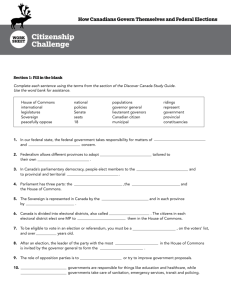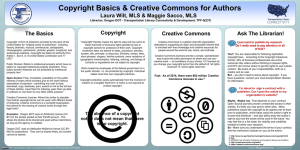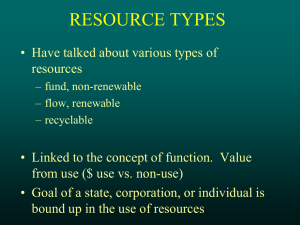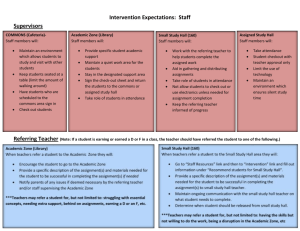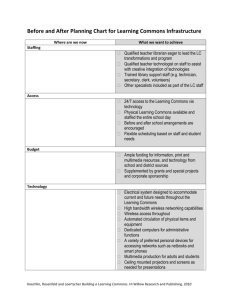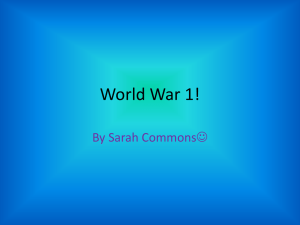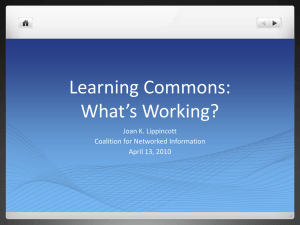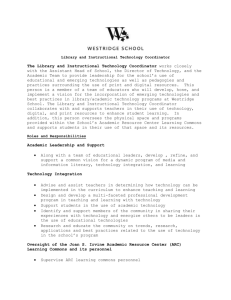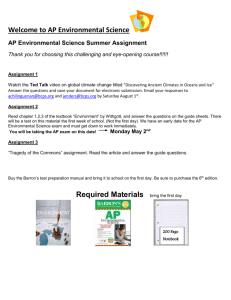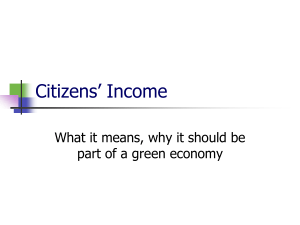The Commons
advertisement
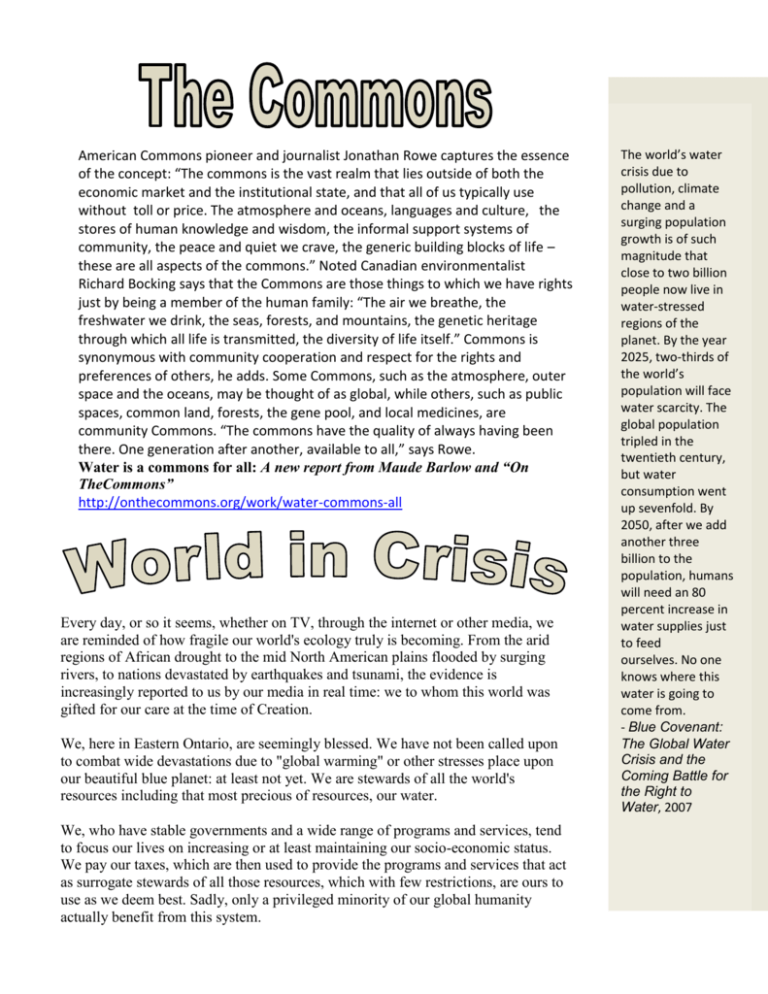
American Commons pioneer and journalist Jonathan Rowe captures the essence of the concept: “The commons is the vast realm that lies outside of both the economic market and the institutional state, and that all of us typically use without toll or price. The atmosphere and oceans, languages and culture, the stores of human knowledge and wisdom, the informal support systems of community, the peace and quiet we crave, the generic building blocks of life – these are all aspects of the commons.” Noted Canadian environmentalist Richard Bocking says that the Commons are those things to which we have rights just by being a member of the human family: “The air we breathe, the freshwater we drink, the seas, forests, and mountains, the genetic heritage through which all life is transmitted, the diversity of life itself.” Commons is synonymous with community cooperation and respect for the rights and preferences of others, he adds. Some Commons, such as the atmosphere, outer space and the oceans, may be thought of as global, while others, such as public spaces, common land, forests, the gene pool, and local medicines, are community Commons. “The commons have the quality of always having been there. One generation after another, available to all,” says Rowe. Water is a commons for all: A new report from Maude Barlow and “On TheCommons” http://onthecommons.org/work/water-commons-all Every day, or so it seems, whether on TV, through the internet or other media, we are reminded of how fragile our world's ecology truly is becoming. From the arid regions of African drought to the mid North American plains flooded by surging rivers, to nations devastated by earthquakes and tsunami, the evidence is increasingly reported to us by our media in real time: we to whom this world was gifted for our care at the time of Creation. We, here in Eastern Ontario, are seemingly blessed. We have not been called upon to combat wide devastations due to "global warming" or other stresses place upon our beautiful blue planet: at least not yet. We are stewards of all the world's resources including that most precious of resources, our water. We, who have stable governments and a wide range of programs and services, tend to focus our lives on increasing or at least maintaining our socio-economic status. We pay our taxes, which are then used to provide the programs and services that act as surrogate stewards of all those resources, which with few restrictions, are ours to use as we deem best. Sadly, only a privileged minority of our global humanity actually benefit from this system. The world’s water crisis due to pollution, climate change and a surging population growth is of such magnitude that close to two billion people now live in water-stressed regions of the planet. By the year 2025, two-thirds of the world’s population will face water scarcity. The global population tripled in the twentieth century, but water consumption went up sevenfold. By 2050, after we add another three billion to the population, humans will need an 80 percent increase in water supplies just to feed ourselves. No one knows where this water is going to come from. - Blue Covenant: The Global Water Crisis and the Coming Battle for the Right to Water, 2007 The Pope, in his letter Caritas in Veritate tells us that this has to urgently change if there is to be integral human development in love and truth. How we care for our water affects the whole globe and each of us living on it. This applies, of course, not just to water but to our air, our soils, our forests, our seas and human life generally. But we are not called upon to try and tackle all the problems that afflict our world. What follows are a few ideas on how you, your family, your faith community and community at large can actively participate in bettering the quality and supply of fresh water locally and even globally. What you can do to protect and maintain the world's fresh water ? Pray, Explore, Educate, Rally: form or join a PEER Movement 1. PRAY: offer prayers of thanks to God for the gift of your clean water. 2. PRAY that others in the world will also have clean and safe water. 3. EXPLORE: a little more about the importance of water for humanity and our Earth by visiting the library or web sites, such as those below. 4. EXPLORE: there are volunteer opportunities that you can participate in, e.g. checking water quality in Ontario lakes and streams. 5. EDUCATE: show and tell others around you of worthwhile opportunities or projects that your searches have identified which affect them as well. 6. RALLY: become a member of an organization with which you sense solidarity. As you explore the meaning of The Commons and its relevance to the Pope's call in his letter, inform others of your interests and willingness to help develop a local response to help the world's ecology. You are encouraged to visit http://onthecommons.org/ where local, national and international experts and organizations assemble to examine the various ecological stresses on our planet. The site is fertile with a wide array of ideas on how to affect positive changes. Visit the United Nations web site on the water for life decade 2005-20015. http://www.un.org/waterforlifedecade/ Kingston Utilities have their web with a variety of useful information, as would most municipalities you can surf towards. http://www.utilitieskingston.com/Water/ Ontario's web site is highly informative and offers opportunities for some volunteering http://www.ene.gov.on.ca/environment/en/category/water/index.htm Environment Canada has a web site that is worth exploring at http://www.ec.gc.ca/
